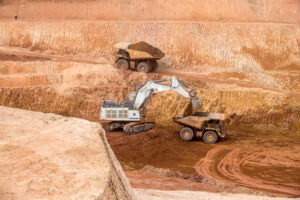RECAP: Mali Overhauled Mining Sector to Reinforce State Revenue and Stability
Mali’s mining sector remains one of the country’s economic pillars. In 2022, it accounted for 9.2% of GDP, 76.5% of export revenue, and more than a third of state revenue. Yet despite this central role, many Malians have long felt that the wealth beneath their soil has not translated into better schools, clinics, or livelihoods.
Like many mineral-rich nations across Africa, Mali has now rewrote this narrative. Its 2023 mining code introduced far-reaching reforms aimed at correcting decades of uneven revenue distribution, environmental damage, including limited local participation. Similar policy reforms in Tanzania, Zambia, with Democratic Republic of Congo, have gesticulated a continental trend demanding greater value from her natural resources.
![]()
Under Mali’s new legislation, the state’s minimum ownership in mining projects rises, generally between 10% and 30%. Presenting the government’s push for stronger sovereignty over its mineral wealth. Companies face higher royalty and tax rates, stricter environmental requirements plus expanded obligations to invest in community development. Employment/procurement rules were also tightened to ensure that more jobs and business opportunities get to Malians.
As for families in mining regions, these measures are gradually becoming transformative. Increased state revenue, has the potential to improve under-resourced health centres, strengthen education systems, expand access to clean water and electricity, sustain social economic status, etc. And this reform provisions could gradually open doors for young people seeking skilled work in rural areas where economic options are limited.
The reforms also abolish long-standing tax exemptions and a generous 25% fiscal concession previously available for up to 15 years. A new 10% royalty on production that exceeds projected quantities aims to prevent companies from underestimating output to avoid payments. Several new funds designed to support social inclusion, environmental restoration, oversight functions, infrastructural development inclusive, depicts the government’s attempt to channel mining income more fairly.
![]()
Predictably, these reforms have been met with counter responses from major mining companies, echoing disagreements. Tensions escalated in some cases, showcasing difficulties of renegotiation, while some signs of cooperation budded. Some of the firms such as Robex Resources, UK-based Endeavour Mining, Faboula Gold and Bagama Mining, agreed to operate under the new code. Though their projects are smaller, they demonstrate that productive partnerships remain possible and can generate meaningful rural employment.
Some critics labelled Mali’s approach as nationalizing their natural resources. Then again, supporters argue that transparent, well-managed resources by good governance, is essential for improving living conditions. Research suggests that stronger mining revenue streams in West Africa, particularly in Mali/Senegal, could significantly expand access to healthcare, with social services, areas where many families feel the strain of chronic underinvestment.

The political stakes are high, as Mali faces persistent security threats. And local grievances over poverty and exclusion are also feeding the rise of security instability in some regions. By providing employment and reliable fiscal contributions, the mining industry can play a stabilizing role. Also, if companies sustain compliance with the regulations to pay their share of taxes, the impact will be enormously positive. Because ultimately, the sector’s long-term profitability is inseparable from the country’s socioeconomic stability of its people.
Mali’s new mining code redefines the relationship between mineral wealth and human development. It success depends on the sustenance of its political commitment, transparent management, including continued dialogue between the state and industry, inclusive of the communities.






